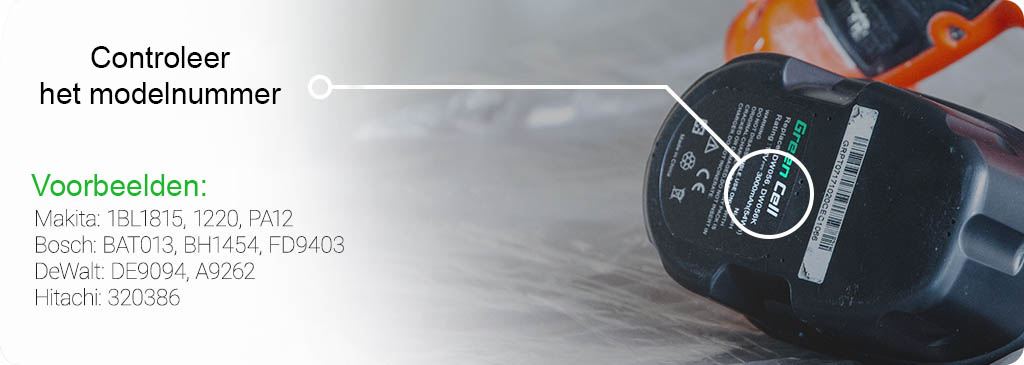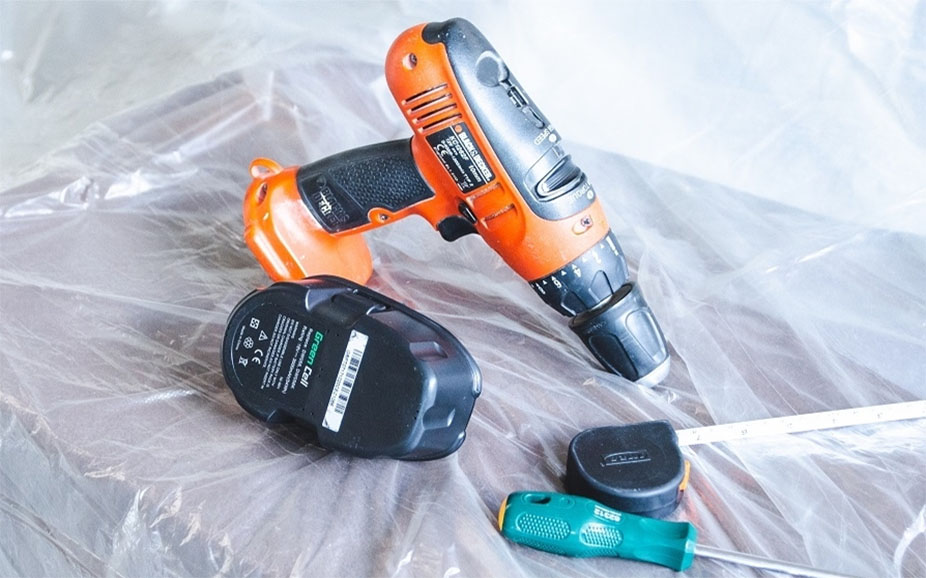Which tool battery should I choose?
If you have tools at home, you naturally want to ensure that you enjoy your equipment for as long as possible. Because the battery of your tools is extremely important, it is necessary to really invest in it. Without a good tool battery you will not be able to use your tools in the best possible way. The information in this article gives you all the useful information you need to know about choosing a tool battery. By going through this carefully, you will no longer be faced with surprises when making a purchase.

What to look for when buying a tool battery?
Before we discuss the different types of tool batteries that can be found, it is useful to first consider what you should pay attention to when making your purchase. There are a number of different factors that are critical to your tool battery. We have summarized these for you below:
- Total Life – The total life of the battery is usually expressed as the number of charge cycles that the battery can withstand before it has completely lost its charging capacity or ability to transfer energy. For example, NiCd batteries typically have a lifespan of 1,000 charges (cycles) or more. All rechargeable batteries eventually wear out, but the lifespan sometimes differs between the various devices that can be found. Some batteries simply have a longer lifespan than other batteries. The longer the life of your tool battery, the more you generally pay.
- The type of self-discharge – All rechargeable batteries lose their charge slowly when not in use. However, some batteries lose their charge much faster than others. For some users, batteries with rapid self-discharge are not a problem, especially if their cordless tools are used little or not at all. However, it is annoying if you want to use your tools for a longer period of time. With the wrong battery, you're halfway through with an empty device. Batteries with a low self-discharge are useful for people who plan to use their cordless tools more often.
- The capacity – This is the amount of time it takes for a battery to completely discharge between charges. The capacity of a battery is usually expressed as the number of amp-hours (Ah) that the battery can supply. "Ah" is different from the total current of the tool. Instead, Ah indicates how much energy the battery can hold, it's not about the current during use. If you're looking for a cordless tool, a higher Ah power means the battery lasts longer between charges
- Voltage – The voltage determines how much energy a battery can supply at a given time. In general, higher voltage tools are more powerful. Batteries for rechargeable power tools usually consist of a cluster of individual cells. The combined voltage of the cells determines the total voltage of the battery. However, different battery types (NiCD, NiMH, Li-Ion) have different capacities for the voltage of the individual cells. We'll show you more about this in a moment.
The different types of batteries
Now that you know more about the factors involved in choosing a battery for your tool, it's time to look at the different types of batteries out there. To make things a little easier for you, we have listed the most common types of batteries for you, so you know exactly what to choose.
- NiCd Batteries – NiCd batteries have long been the most commonly used type of batteries. These batteries are still used today because they are strong and cheap. They also have a very long life compared to other batteries. While still suitable for some applications, NiMH and Li-Ion batteries are generally slightly better than NiCd batteries. NiCd batteries are stronger against, among other things, damage caused by dropping. It is also true that the NiCd batteries have a lifespan of up to 1,000 charges. As a result, they always supply strong current.
- NiMH Batteries – NiMH batteries are better than NiCd in many ways. This is primarily due to the fact that they are less toxic to the environment. However, the biggest improvement of the NiMH batteries is their increased capacity. This is more than two to three times longer than that of NiCd batteries. However, NiMH batteries are also very sensitive to storage and charging conditions. This makes it less convenient for people who have a cold shed. NiMH batteries are slightly lighter than NiCd batteries. They also have a higher energy density. This means they last 2 to 3 times longer on a single charge.
- Lithium Ion batteries – Lithium ion batteries (Li-Ion) are the newest batteries you can find. They are definitely the best choice of the three types of batteries. On the other hand, you also pay a lot for these batteries. The Li-Ion batteries do not wear out over time due to charging problems. Instead, Li-Ion batteries wear out with age and use. With age and use, the internal components of Li-Ion batteries wear out and their electrochemical processes are reversed. This is not something you need to worry about, because it takes quite a long time before this happens. These batteries are particularly ideal due to the fact that they have a high capacity.

If all goes well, by reading this article you will know better what to look for when buying a battery for your tool. Due to the countless options, it is always possible to arrive at the battery that matches your tool. For a versatile range of all types of batteries, you have come to the right place on the site. If you want to learn more about choosing the right batteries or chargers, you're in luck. Here on the site there are many more articles that you should definitely read.







